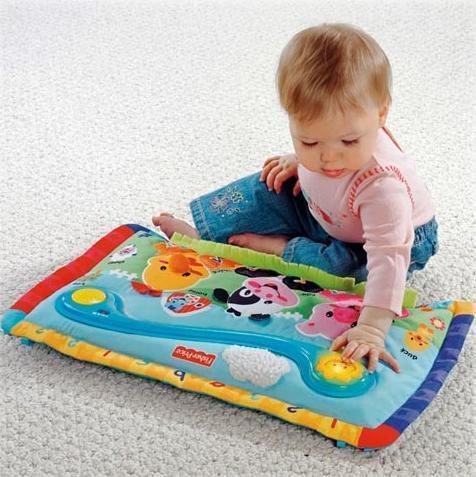12 Small Tips for Playing Parent-Child Games with Your Kids_Children's Games_Sina Blog
Professor Chen Guomei, a renowned children's education expert, once said: The first priority in parents' education of young children is to cultivate good living habits, and the second is to engage in parent-child games with them. Parent-child games can effectively promote emotional exchanges between parents and children, strengthen parent-child relationships, and promote the healthy development of children. So, how can we carry out scientific parent-child games? What are the essential conditions? What issues need attention? How should game time be controlled? Here are 12 small tips for playing parent-child games with your child:
1. Establish an equal playmate relationship
When playing games with young children, avoid taking an authoritative attitude or even setting a schedule, as this will make it hard for the child to continue playing. Building an equal playmate relationship with the child is the highest realm of parent-child games, which can better motivate the child's enthusiasm for the game. Let the child learn to deal with things correctly through imitation and creative participation during the game. Playing parent-child games is not like having a class; parents should not boss the child around but should be participants in the game on an equal footing with the child.
2. Let the child be the master of the game
Games are the best way for children to learn and the best training method to cultivate good character and behavior. Parents should not measure the child's gaming behavior by their own values, artificially limiting the child's gaming methods, or forcing the child to play games they don't like in order to "learn" "knowledge."
Parents should especially respect the child's self-created game content and cherish the child's creative performance. When the child indeed encounters unsolvable problems or issues that may have a negative impact on them during the game process, only then should the parents intervene and guide the child.
3. Conduct games according to the child's age characteristics
Children of different age groups have different interests and enthusiasm for different games.
Parents should guide children of different age groups to play games suitable for them as much as possible, which will interest them and help develop their intelligence and imagination.
4. Develop good gaming habits
Good gaming habits will have a crucial impact on a child's growth. Let the child learn to follow game rules, reasonably arrange game time, etc., and the establishment of these good gaming habits is the best way for the child to understand social behavioral rules.
After playing with toys, let the child tidy up themselves and return items to their original place; limit game time and don't let the child play endlessly, and definitely don't let playing affect eating, sleeping, etc.
5. Create a good gaming environment
Any novel thing or peculiar object will make young children curious. Driven by curiosity, children will learn and grow through gaming activities. First, parents should create a good gaming environment. The parent-child environment created by parents should allow the child to see, hear, touch, and fully perceive and experience. For example, parents can set aside a corner for the child, separated by cloth, or use recycled materials to create a special gaming environment for the child.
6. Give the child the right to play alone
Sometimes, children do not always need someone to accompany them as we imagine; they also need their own space. Even children just a few months old can enjoy playing with their own hands and feet, experiencing the joy of playing alone.
While conducting parent-child games, parents should take every opportunity to encourage independent play in the child. When the child plays happily without crying or making noise, do not disturb the child, give them a little time and space of their own appropriately.
7. Provide timely help when the child needs it
Games are the best way for children to find answers themselves. When the child is enthusiastic about gaming activities, they may make some rather special requests. At this point, parents should not ignore or restrict the child because they think the gaming activity is meaningless but should try to help them as much as possible. Do not constrain them because you're afraid they'll get their clothes dirty or other issues will arise. Providing help to the child requires finding the right balance. For example, when the child encounters difficulties in the game, give the child the opportunity to solve the problem themselves. Only provide some help when the child truly cannot solve the problem. This way, the child can experience life in various activities and learn to think.
8. Actively participate in the child's game and focus on mutual cooperation
Parents should actively participate and naturally stimulate the development of the child's intelligence. The designed games should make the child actively seek the cooperation of the parents, so the parents can naturally teach the child some knowledge and skills.
9. Balance entertainment and education
Parents who only recognize the entertainment value of games and neglect the educational aspect make parent-child games appear as indulging the child. For example, some parents obediently let the child ride on their back when asked.
10. Provide a variety of game materials for the child
Such as small pieces of paper, seeds, soil, small scissors, building blocks, water, sand, paint, empty cardboard boxes, etc., allowing them to use their brains to play games.
11. Choose games that bring fun
The entire game process should bring joy to both the child and the parents. Let the child experience the happiness of creation and success in the game, and let the parents feel the happiness of parent-child communication.
12. Vary the game types
Parents should learn more games and integrate parent-child games with specific functions into daily childcare life, thus enriching and making the childcare life happy while continuously developing the child's potential.
In short, parents should learn more parent-child games, bring games into the family, evolve the family into a harmonious parent-child classroom full of joy, and a healthy and happy growth paradise, enabling young children to develop their potential, cultivate their personality, enrich their minds, and refine their sentiments in games, truly achieving comprehensive and harmonious development.




